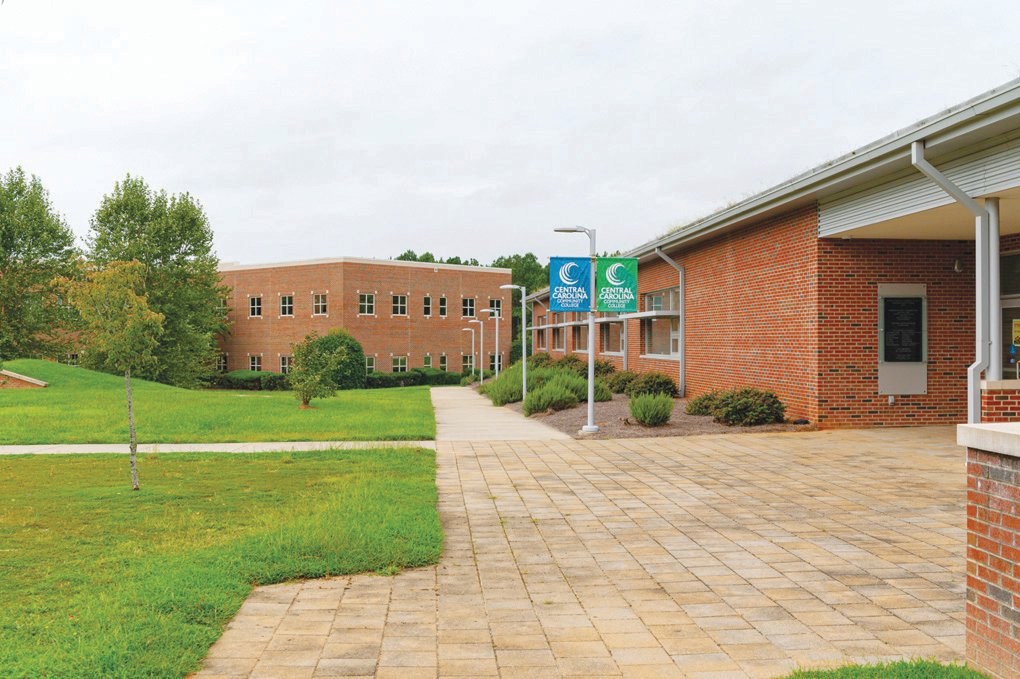
More than a year and half after first moving classes online due to COVID-19, Central Carolina Community College is set to fully resume its in-person instruction across its programming this fall.
The college offered some in-person instruction shortly after moving completely remote in spring of 2020, as was the case for many science lab courses or technician courses such as welding or construction. While in-person class offerings have only increased since then, fall 2021 will mark the first semester returning to CCCC’s pre-pandemic academic in-person programming since March 2020.
“We felt we had very little issues during the pandemic following the safety protocols, and feel very confident that we’re going to be good this fall as well,” CCCC’s Chatham County Provost, Mark Hall, told the News + Record. “We’ve been doing it — and we’ve been successful. As one of the college leaders, I’m proud of how the college, all the employees, together did that for the students. And how we’re going to do that this fall.”
CCCC is still closely following guidance from local, state and national health departments and organizations, Hall said, noting specifically that recommendations like those from the national Centers for Disease Control OK’ing three feet of physical distance in school buildings had not been extended beyond the K-12 level. While CCCC is not technically operating at half capacity in its buildings, Hall said classes and furniture were arranged to maximize distance in every place in-person learning is being offered.
As of now, the college’s policy is to require universal masking inside instructional spaces, regardless of vaccination status.
“What we didn’t do, is we didn’t go across the board and say it’s all half capacity,” Hall said. “We looked at every space, and what was happening in that space, and decided what would be a safe number for that particular space — and then we’re running classes accordingly.”
The college has campuses in Chatham, Lee and Harnett counties, and through partnerships with the prospective governments, offers two free years of tuition to qualifying high school graduates through a program called Chatham Promise.
The second semester of summer classes at CCCC concluded last week, and registration for the fall semester doesn’t end until Aug. 12, with classes beginning Aug. 16.
Nationally and across North Carolina, many community colleges have seen decreased student enrollment that many attribute to the negative financial impact of the pandemic. At CCCC, Hall said enrollment is “actually doing OK.”
Last fall, the News + Record reported the college’s 9% enrollment decrease. At the time, Hall said the decline was not too concerning for two reasons: it represented a decline from the college’s all-time-high enrollment in 2019, and didn’t yet include registration for the college’s eight- and 12-week courses.
Now, Hall said enrollment numbers are currently higher than last year’s, with three weeks before registration closes.
“So the trajectory is probably going to be somewhere between our highest enrollment ever and our second highest enrollment,” he said, “because 2020 was still our second highest enrollment ever, down from the year before.”
Still, enrollment dipped further in the spring, college President Lisa Chapman told the News + Record last June. While she still wasn’t too concerned — noting the numbers were still comparable with previous years — she did note that registration could still impact the college’s budget moving forward.
“We’re hoping the legislature will address that for all of our colleges,” she said at the time. “What concerns us more, however, is that we didn’t engage students as we usually had. Since we have important career pathways in place for lots of great jobs coming to this region, our biggest concern at the college was that we’ve cut opportunities in this area.”
Still, CCCC offered some in-person instruction during times in which other neighboring colleges and universities offered remote courses only, and opened campuses with very limited operations.
Now, though the college will still be marked by some signs of COVID-19 — such as masks and more spaced out classrooms — the return to a full offering of in-person courses is an encouraging sign, one Chapman attributed to higher vaccination rates among the “college family.” Chapman also said she couldn’t have asked for a better “professional group” with which to make the transition through COVID-19 — including students and faculty alike.
“... We try very hard not to use the term ‘normal’ anymore; I don’t think you can even say ‘new normal,’” Chapman said in June. “We’re just going to continue to do business — the way circumstances support us doing business.”
Reporter Hannah McClellan can be reached at hannah@chathamnr.com or on Twitter at @HannerMcClellan.